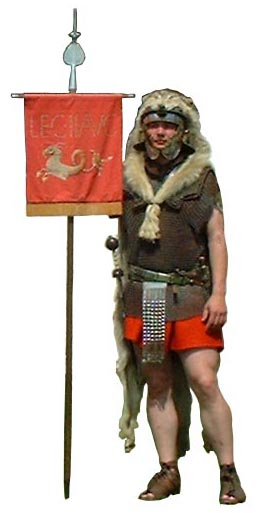We are certainly progressing through the poem. And so we should be, considering that it has been a year and a half since I started the translation! My request a few posts back that visitors leave a comment on the work, whether positive or helpful (that is, negative), went without response, I'm sad to say. I'll continue the translation, nevertheless. This post makes it over 87% complete.
Since Beowulf's dying request was to see the dragon's hoard, Wiglaf enters the old barrow to fetch it. He sees old armour, a wonderful golden "standard," and a heap of treasure. He fills up his arms and exits the chamber.
The standard, flag, or banner referred to interests me. It is a counterpart to the standard that was mentioned at the poem's start, which was raised on the boat that brought the baby Scyld to the Danes. What would it have looked like?
The Bayeux tapestry shows the Anglo-Saxons with dragon-shaped windsock banners. One is upright, the other has fallen.
More information is available here.
The tapestry also shows triangular flags that may be raven banners, like those of the vikings.
My imagination pictures it as a Roman-style vexillum, like this.
That, however, is pure speculation.
--------------------------------------------------------------------------
At once, I heard, Weohstan's son,
after the words of the wounded king,
obeyed the injured man, bore the ring net,
the woven war-shirt, within the barrow. 2755
Verging the seat the victor saw,
the spirited youth, a splendour of jewels,
glittering gold on the ground itself,
wonders on the wall; and the worm's sleeping place--
the old twilight flyer. And flagons stood 2760
of bygone nobles--no burnishers there--
stripped of their riches; a store of helmets,
rusted relics; rings for the arm,
cleverly clasped.
It can easily,
such gold in the ground, grab hold of a man 2765
and, whoever hides it, it will have its way.
A golden standard also struck his eye,
high over the hoard, a handmade wonder,
carefully crafted. It cast a light
that let the man look from the ground; 2770
it drew his eyes. Of the dragon itself,
he saw no sign. The sword's edge took him.
Then the heaped-up hoard, I heard, was plundered;
the old work of giants, by just one man.
He filled his arms with flagons and plates 2775
and chose to bring the banner, too,
the brightest beacon. The blade of his old lord--
its edge was iron-- had earlier wounded
the one who had guarded the wealth of treasures.



No comments:
Post a Comment